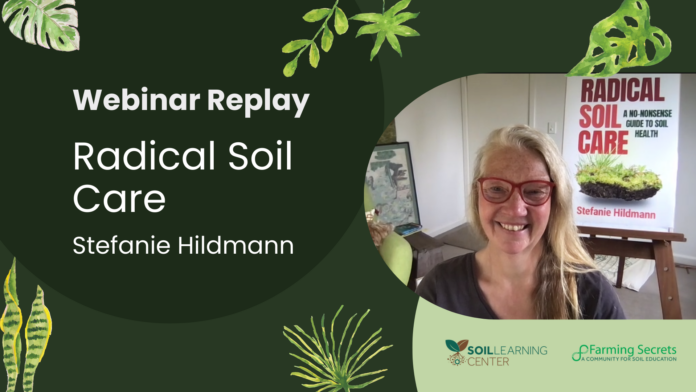Points discussed in this presentationHelen and Hugo from Farming Secrets welcomed Stefanie Hildmann, author of the book “Radical Soil Care – A No-Nonsense Guide to Soil Health”.Stefanie asks: Do you really understand the importance of a healthy soil?She emphasizes the importance of understanding soil biology to determine if a product or service is beneficial for the soil.How do you discern beneficial products from those that are not?Stefanie also addresses the politicization of soil health and the need to keep the discussion focused on the science.Soil Organic Matter and Microbiome Health. Stefanie emphasizes the critical role of soil organic matter in soil health, biodiversity, and food security. Soil biology, including bacteria, fungi, and microorganisms, plays a vital role in the food chain, energy production, and ecological cycles such as water and carbon. Stefanie also highlights the issue of soil degradation, particularly in Australia, and the need for continuous replenishment of soil organic matter through regeneration. She underscores the importance of soil biology for nutrient content of plants and animals, including humans, and its role in the health of the human microbiome concluding that a diverse microbial community and healthy soils contribute to improved health and happiness.Soil Biology and Environmental Impact. Stefanie discusses the importance of soil biology and its impact on the environment. She emphasizes the relationship between mushrooms, mycelium mats, and soil health, noting that the absence of mushrooms often indicates poor soil health and erosion, a common issue in South Gippsland. Stefanie highlighted the role of soil organic matter in water cycles and the importance of maintaining healthy soil biology to sequester carbon and stabilize temperature. They also underscored the need for careful and considerate land management, regenerating soil organic matter, and avoiding disruptive practices such as chemical fertilization, herbicides, and pesticides.Biochar vs Charcoal: Soil Inoculation and Nutrient Absorption. The discussion revolves around the comparison of Biochar and charcoal and Stefanie questions its superiority over compost. The conversation also touched upon the use of Biochar as a soil amendment, and its potential impact on soil microorganisms and animal digestion.Thank you very much Stefanie for your presentation and discussion!
